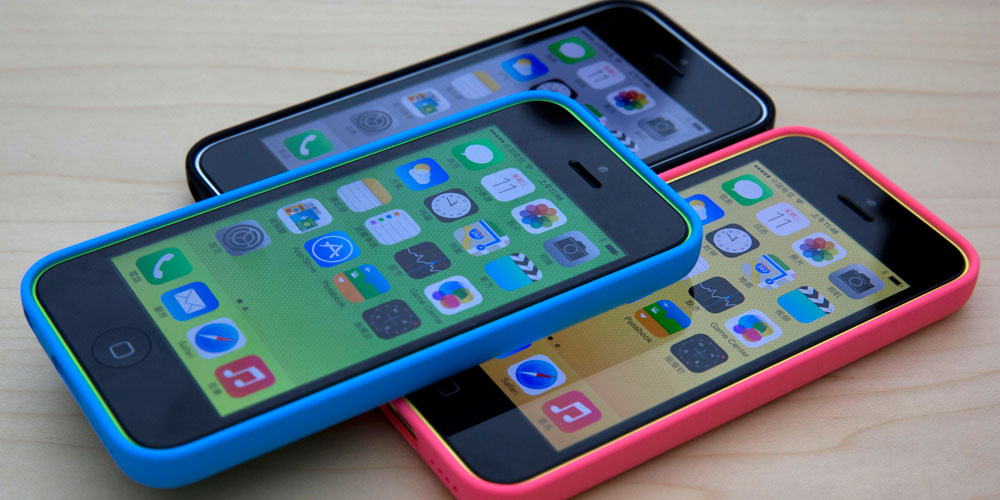
In this photo taken Wednesday, Sept. 11, 2013, new plastic iPhones 5C are displayed during a media event held in Beijing, China. Last year, eager buyers in Beijing waited overnight in freezing weather to buy the iPhone 4S. Pressure to get it — and the profit to be made by reselling scarce phones — prompted some to pelt the store with eggs when Apple, worried about the size of the crowd, postponed opening. Just 18 months later, many Chinese gadget lovers responded with a shrug this week when Apple Inc. unveiled two new versions of the iPhone 5. AP Photo/Ng Han Guan
TOKYO – Apple acolytes get their hands on new iPhones Friday in the global rollout of two new models, but failure to make headway in China looks set to undermine a glittering launch, analysts say.
The once-unbeatable king of the smartphones may have penned a potentially-lucrative new deal with Docomo, Japan’s biggest mobile carrier, but is without a shiny new alliance in the vast Chinese market.
That, and the disappointment over the high price of the pared-down iPhone 5C, could mute the fanfare that routinely accompanies launches, observers say.
The double debut will see around-the-world sales of the iPhone 5S and 5C, beginning in Australia before moving through Asia, Europe and North America.
The iPhone 5S, a slick new top-end model featuring a speedier chip and a fingerprint sensor, starts at $199 with a contract in the United States.
Its launch companion is a polycarbonate version, supposedly aimed at budget-conscious smartphone shoppers, with a minimum $99 price tag in the US and widely trailed as Apple’s answer to the onslaught of cheaper, Android-powered models, led by Samsung.
But its hefty $700 ticket price in China will put it out of reach of most consumers in the world’s biggest mobile market.
“It’s not worth the price,” said Wang Ying, a Beijing-based analyst with consultant firm iResearch. Many domestically-made smartphones are priced as low as $100.
Wang said Apple also appeared to have missed a trick by not reaching a deal with China Mobile and its 700 million subscribers.
Currently, Apple has sales contracts with China Unicom and China Telecom.
“Apple’s performance is declining in the world as well as in China,” Wang said. “Cooperating with China Mobile will be a significant channel for Apple to… win more users.”
The launch was looking brighter in Japan, where diehard fans who began queuing last week sat out a weekend typhoon.
A new deal with Docomo, the mobile unit of NTT, has opened up a much wider cross-section of Japan’s cash-rich, gadget-loving consumers after years in which both companies lost market share.
Docomo is looking to reverse years of watching domestic rivals cash in on the iPhone bonanza.
The firm, which has about 42 percent of the Japanese market, has shed more than 3.5 million subscribers to rivals since 2008, when SoftBank first rolled out the iPhone in Japan, local media have reported.
“Docomo’s partnership should be a favorable wind for Apple in Japan,” said Toshihiko Matsuno, chief strategist at SMBC Friend Securities.